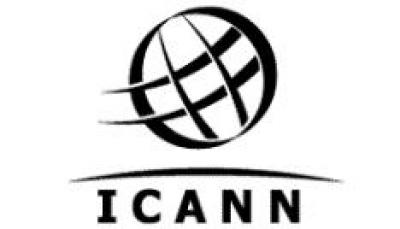Icann To Revise Conflict-Of-Interest Rules

Icann has admitted it needs to strengthen its policy around conflicts of interest as criticism grows of dot-anything domains
The Internet Corporation for Assigned Names and Numbers (Icann) is bolstering its rules, in response to a possibility that the US government may withdraw its power of the Internet, following criticism over the way it introduced new Internet domains, and
Icann has appointed outside consultants to help strengthen its conflict-of-interest policies in the wake of sustained criticism around the organisation’s launch of new generic top-level domains (gTLDs), and after the US government withdrew a request for proposals for Icann to continue to manage the Internet’s address system.
Revised policy
 Icann’s president and chief executive, Rod Beckstrom (pictured), said on Monday that Jermyn Brooks, Aron Cramer and Mervyn King have been apointed to review Icann’s conflict-of-interest practices and provide advice on ethics.
Icann’s president and chief executive, Rod Beckstrom (pictured), said on Monday that Jermyn Brooks, Aron Cramer and Mervyn King have been apointed to review Icann’s conflict-of-interest practices and provide advice on ethics.
The organisation has also posted a revised conflict-of-interest policy (PDF) and on Monday called for public comment on the changes. The revised policy “strengthens procedures for disclosing, processing and evaluating actual and potential conflicts of interest”, Icann stated.
Beckstrom said the issue of conflicts of interest is taking on added importance with the rollout of gTLDs, which will allow the creation of any top-level domain with a limit of 64 characters, including place names, generic words, brands or other strings of characters.
Speaking at the opening of Icann’s latest public meeting in San José, Costa Rica, Beckstrom said the organisation has made efforts to keep the formulation of gTLD policies clear of conflicts of interest, but admitted more must be done.
“I believe it is time to further tighten up the rules that have allowed perceived conflicts to exist within our board,” Beckstrom said in his speech. “This is necessary not just to be responsive to the growing chorus of criticism about Icann’s ethics environment, but to ensure that absolute dedication to the public good supersedes all other priorities.”
Criticism
Icann has faced conflict-of-interest criticism since its board’s previous chairman, Peter Dengate Thrush, left to chair Top Level Domain Holdings, a company expected to profit from the gTLD introduction. Thrush left Icann last summer, less than a month after the gTLD plan was approved.
The difficulty for Icann is that its leadership is largely composed of people who work within the domain-name industry, Beckstrom said.
“Icann must place commercial and financial interests in their appropriate context. How can it do this if all top leadership is from the very domain name industry it is supposed to coordinate independently?” Beckstrom said.
Beckstrom said Icann has so far received 254 applications for new top-level domains, with a list of applicants to be published on 1 May.
Companies with well-known brands and advertising associations oppose the introduction of gTLDs, arguing it will impose costs on them to protect their intellectual property from cyber-squatters.
The US Commerce Department is currently in the process of reassigning the management of the Internet’s address system, a function currently handled by Icann, drawing further scrutiny of Icann’s objectivity.
On 10 March the Commerce Department’s National Telecommunications and Information Administration (NTIA) withdrew a request for proposals on a new contract, saying there had been no satisfactory responses. The contract includes a requirement for a strong conflict of interest policy.
Icann’s contract for the role has been extended until 30 September, with the NTIA to re-issue the call for proposals at a later date.